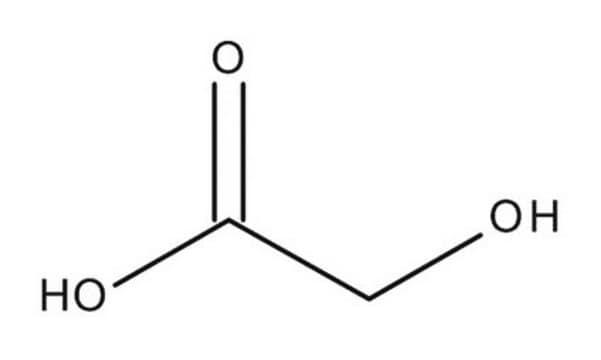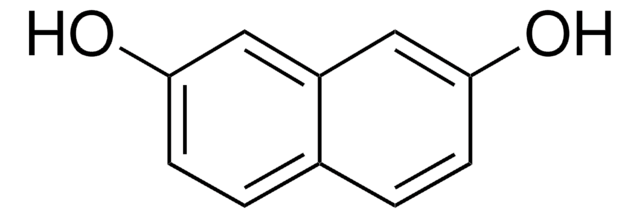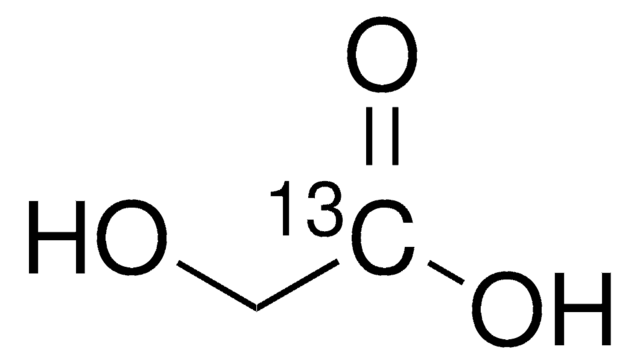124737
Glycolic acid
ReagentPlus®, 99%
Synonym(s):
Hydroxyacetic acid
About This Item
Recommended Products
Quality Level
product line
ReagentPlus®
Assay
99%
form
solid
mp
75-80 °C (lit.)
solubility
H2O: 50 mg/mL, clear, colorless
SMILES string
OCC(O)=O
InChI
1S/C2H4O3/c3-1-2(4)5/h3H,1H2,(H,4,5)
InChI key
AEMRFAOFKBGASW-UHFFFAOYSA-N
Looking for similar products? Visit Product Comparison Guide
General description
Application
Other Notes
Legal Information
Signal Word
Danger
Hazard Statements
Precautionary Statements
Hazard Classifications
Acute Tox. 4 Inhalation - Eye Dam. 1 - Skin Corr. 1B
Storage Class Code
8A - Combustible corrosive hazardous materials
WGK
WGK 1
Flash Point(F)
>572.0 °F - (decomposition)
Flash Point(C)
> 300 °C - (decomposition)
Personal Protective Equipment
Regulatory Listings
Regulatory Listings are mainly provided for chemical products. Only limited information can be provided here for non-chemical products. No entry means none of the components are listed. It is the user’s obligation to ensure the safe and legal use of the product.
PDSCL
Deleterious substance
ISHL Indicated Name
Substances Subject to be Indicated Names
ISHL Notified Names
Substances Subject to be Notified Names
JAN Code
124737-100G:4548173959412
124737-25G:4548173957500
124737-12KG:4548173957494
124737-BULK:
124737-VAR:
124737-500G:4548173959429
Choose from one of the most recent versions:
Already Own This Product?
Find documentation for the products that you have recently purchased in the Document Library.
Customers Also Viewed
Our team of scientists has experience in all areas of research including Life Science, Material Science, Chemical Synthesis, Chromatography, Analytical and many others.
Contact Technical Service










